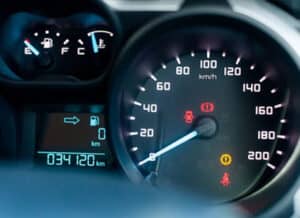The Disadvantages of Natural Gas Vehicles.Are you buying a natural gas vehicle? Natural gas vehicles (NGVs) have gained popularity in recent years as a more environmentally friendly alternative to traditional gasoline-powered cars. According to the Green Economy Journal, there are approximately 23 million natural gas vehicles worldwide, and this is because they offer several advantages, such as reduced emissions and cost savings on fuel. However, like any technology, NGVs also come with their fair share of disadvantages. In this article, we’ll explore the advantages and disadvantages of natural gas vehicles, commonly known as NGVs, and help you understand the drawbacks associated with using them.
What is a natural gas vehicle?
Before diving into the disadvantages, let’s briefly discuss what natural gas vehicles are. NGVs are automobiles that run on compressed natural gas (CNG) instead of gasoline or diesel. They are equipped with specialized tanks to store the compressed gas, and the engines are modified to accommodate the use of natural gas as fuel.
Advantages of Natural Gas Vehicles
It’s important to acknowledge that NGVs offer numerous benefits, which is why they continue to gain popularity. Some advantages of natural gas vehicles include:
Reduced Emissions
Air pollution and climate change have been big issues worldwide, but with natural gas vehicles, carbon emissions can be significantly reduced. NGVs emit fewer greenhouse gasses and pollutants compared to conventional vehicles, contributing to improved air quality and a reduced carbon footprint.
Cost savings on fuel
What about costs? Natural gas prices are lower than gasoline or diesel prices in many regions, allowing NGV owners to save money on fuel costs over time.
Availability of natural gas deposits
Natural gas deposits are abundant in many countries; however, natural gas is not as popular as petroleum when it comes to power generation and is mostly flared off. Now that there are NGVs, you can be sure that there’ll always be a fuel source since these sources aren’t getting depleted anytime soon.
Low maintenance costs
Another pro of owning a natural gas vehicle is the low maintenance cost. You already spent so much on buying the car; with NGVs, you can have some relief when it comes to maintenance costs.
Tax incentives
In some states and countries, tax incentives are given to owners of natural gas vehicles to support the zero-carbon initiative.
Similar Performance
NGVs provide similar performance levels to gasoline-powered vehicles, ensuring a smooth and reliable driving experience.
Disadvantages of natural gas vehicles
Despite the advantages, there are several disadvantages associated with NGVs. It’s important to consider these drawbacks before making a decision to invest in a natural gas vehicle. Let’s explore them in detail:
Limited Fueling Infrastructure
One significant drawback is the limited availability of natural gas refueling stations compared to traditional gasoline stations. This can restrict the range and convenience of NGVs, especially for long-distance travel or in areas with limited infrastructure. Furthermore, the limited fueling infrastructure may pose challenges for NGV owners who rely heavily on refueling options during their daily commute or business travels.
Higher vehicle costs
NGVs generally come with a higher initial purchase price compared to conventional gasoline-powered vehicles. The cost of modifying the engine and installing the natural gas storage tanks adds to the overall expense. In addition, the cost of maintenance and repairs for NGVs can be higher due to the specialized nature of the technology and the need for skilled technicians.
Speed
Compared to regular gasoline cars, natural gas vehicles are not as fast. So if you are looking for speed, it’s best to get a gasoline-powered car.
Reduced Storage Space
The installation of CNG storage tanks in NGVs reduces the available space for passengers and cargo. This limitation may be a concern for individuals who require ample storage capacity or have larger families. Consequently, the reduced storage space can impact the practicality and versatility of NGVs, particularly for those who frequently transport goods or travel with a significant amount of luggage.
Limited Model Availability
Compared to gasoline-powered vehicles, there is a limited selection of NGV models available on the market. This limited variety may restrict consumer choices and preferences, making it challenging to find an NGV that suits specific requirements or preferences. Moreover, the lack of variety in NGV models can also impact the competitive pricing and bargaining power of potential buyers.
Lower energy density
Natural gas has a lower energy density compared to gasoline or diesel, which means NGVs might have a shorter driving range. This limitation could be a concern for individuals who frequently embark on long trips or live in regions with limited refueling infrastructure. Additionally, the lower energy density of natural gas may necessitate more frequent refueling stops, adding inconvenience for NGV owners.
These are the main disadvantages of natural gas vehi
icles that you need to know if you are purchasing one.
The Importance of Vehicle History Reports for NGV Buyers
If you are a used car buyer and you are interested in buying a used NGV, you must be sure of its history and records from past owners. You wouldn’t want to purchase a vehicle that could have potential defects, so it is recommended that you always check the vehicle’s past before purchase. Instant VIN Report provides the necessary information every used car buyer should know through its accurate VIN check tool. To make use of the tool, all that is required is the NGV’s Vehicle Identification Number (VIN). With this tool, you can easily access the following information:
- Accident history
- Vehicle specifications
- Auction records with more than 10 photos
- Sales history
- Damage records
- Vehicle specifications
- Lien and loan records
- Theft records
- Open recalls
- Warranty information
- Ownership history
- Title-brand records
- Warranty information
- OEM maintenance schedules
- Service history, and more
One of the primary benefits of vehicle history reports is their ability to reveal hidden issues that may not be apparent during a visual or mechanical inspection. Get a vehicle history report from Instant VIN Report and make the most of your natural gas vehicle purchase.









